Animals
-
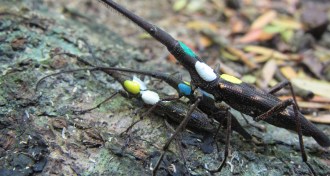 Animals
AnimalsSneaky little giraffe weevils beat big rivals
A little stealth gives smaller giraffe weevil males a leg up when competing with big ones for mates.
By Susan Milius -
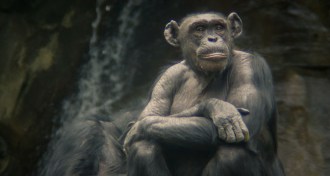 Animals
AnimalsChimps raised among humans may have problems as adults
Chimpanzees taken away from their mothers and raised to be pets or entertainers have problems relating to other chimps later in life.
-
 Ecosystems
Ecosystems‘Where Do Camels Belong?’ explores invasive species
Ecologist Ken Thompson takes a closer look at the impacts (or lack thereof) of invasive species.
-
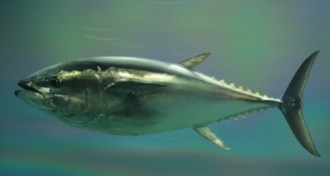 Math
MathSharks’ hunting paths may not be driven by math
Penguins, tuna, sharks and other marine hunters have been shown to use math to find food. But simulations suggest the behavior is a result of rough water, not complex calculation.
-
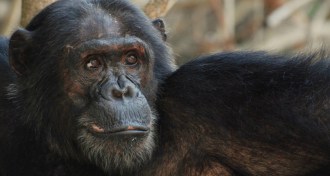 Anthropology
AnthropologyStrategy, not habitat loss, leads chimps to kill rivals
Human impacts on chimpanzees have not increased their violence.
By Bruce Bower -
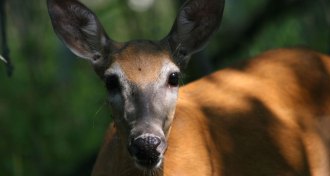 Animals
AnimalsMama deer respond to the cries of human babies
Deer mothers approached a speaker playing distress calls of young mammals when the frequency fell into the same range as fawns.
-
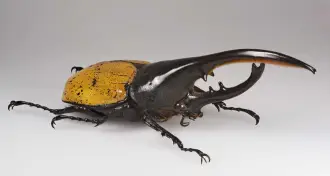 Animals
AnimalsRhinoceros beetle’s horn shape reflects fighting style
The elaborate horns of rhinoceros beetles vary in subtle ways that allow each species to handle the stress and strain of its specific style of battle.
-
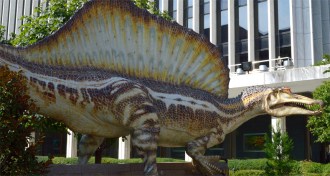 Paleontology
PaleontologyLost-and-found dinosaur thrived in water
Fossils pieced together through ridiculous luck reveal Spinosaurus to be the only known dinosaur adapted for regular ventures into water.
By Susan Milius -
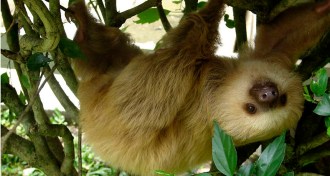 Life
LifeSuperslow sloths may have once evolved superfast
Sloths may evolved some of the fastest rates of body growth reported to date for mammals.
-
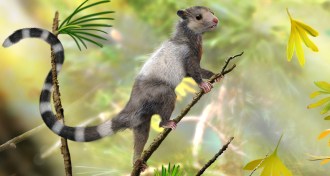 Paleontology
PaleontologyFossils push back origins of modern mammals
Fossils of three newly identified early mammals from China suggest that the common ancestor of today’s mammals lived over 200 million years ago.
By Meghan Rosen -
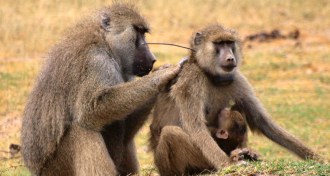 Animals
AnimalsStrong social bonds help lady baboons live longer
Wild, female baboons with stronger social connections with both female and male baboons live longer than females with weaker ties, a new study shows.
-
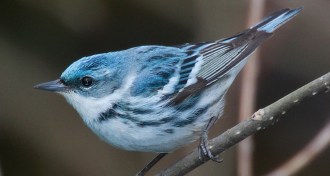 Life
LifeNorth American bird update finds a little good news
Conservation measures have succeeded in improving the plight of certain North American bird species, but overall the national report card says “needs improvement.”
By Susan Milius